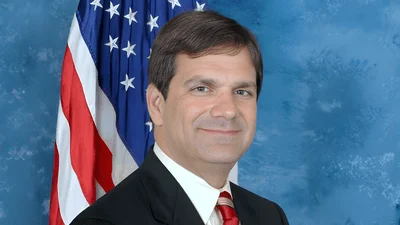Washington, D.C. -On May 21, 2020, the Select Subcommittee on the Coronavirus Crisis, chaired by Rep. James E. Clyburn, held a briefing with essential and frontline workers and their families. Frontline workers discussed the dangers they face serving their communities and the need for government action to protect them.
At the briefing, Chairman Clyburn stated that essential workers are the “true heroes of this crisis." He explained:
“These heroes treat patients who are sick with the virus and comfort the families of those who have lost loved ones. They respond to emergency calls and keep our communities safe. They stock our grocery and drug store shelves. They keep our transit systems running. And they clean our hospitals and offices to prevent the virus from spreading further."
Chairman Clyburn also noted that “cities and states have been literally begging the federal government for months to provide more resources to protect these workers-and many are still waiting."
During the briefing, essential workers described the health risks, financial hardships, and emotional impacts they have faced during the coronavirus pandemic. The briefers emphasized that they need personal protective equipment, fair pay, and paid leave.
Briefers provided the following additional information:
* Essential workers face great personal risks to serve their communities.
Detroit Bus Driver Eric Colts discussed his best friend and colleague Jason Hargrove, who died from coronavirus after being coughed on by a passenger. He also described his role in ensuring that other workers can continue doing their jobs, saying that he drives grocery store workers, nurses, and security officers. He explained, “those too are essential workers that I’m proud to say that I can go and make sure that they can get from place to place."
Zenobia Shepherd, mother of Leilani Jordan, a 27-year-old grocery clerk who died from coronavirus, described her daughter’s motivation to continue working even though her employer did not provide personal protective equipment: “She says, ‘Mommy, I want to go to work, no one is showing up. I want to help the elderly.’"
* The Trump Administration has not provided essential workers with adequate protective equipment.
Dr. Shanti Akers, a physician in Albany, Georgia, described the “terrifying" experience of treating coronavirus patients during an outbreak when critical drugs and protective equipment were running low.
Talisa Hardin, an ICU nurse who cares for suspected coronavirus patients in Chicago, said she and her colleagues were not provided N95 masks early in the crisis, despite the high risk of infection.
* Essential workers and their families face stress, fear, and financial hardship.
Panelists described the severe emotional impact of working during the pandemic. Mr. Colts explained: “We are being attacked by an invisible enemy. I go to work every day afraid, not knowing, hoping that I don’t bring this virus back home to my family."
Marcos Aranda, a custodian in San Francisco, said, “Now I’m trying to raise our family on one paycheck alone, and the pandemic has made it even tougher. When the kids were in school, we could count on the school lunch program, but that help isn’t available right now. … but we’re cutting corners where we can."
New York City EMT Diana Wilson, stated, “During the early days of this pandemic, I’ve sent my sons to live with loved ones to keep them safe from contracting this deadly virus. It’s been 10 weeks since I’ve seen my children."
* Without adequate testing and protections for workers, we cannot reopen safely.
When asked by Rep. Carolyn B. Maloney whether our nation has reliable enough testing to safely reopen, emergency physician and researcher Dr. Megan Ranney replied: “No. No they do not."
She said that fast and accurate testing would make a huge difference in protecting frontline health workers and preventing hospitals from being overwhelmed.
When asked by Rep. Andy Kim whether we are prepared for a second wave of the virus, Dr. Ranney replied, “I do not think we are currently prepared for a second wave" due to the lack of testing, the lack of protective equipment, the lack of scientific progress on fighting the virus, and the lack of consistent public health guidance.








